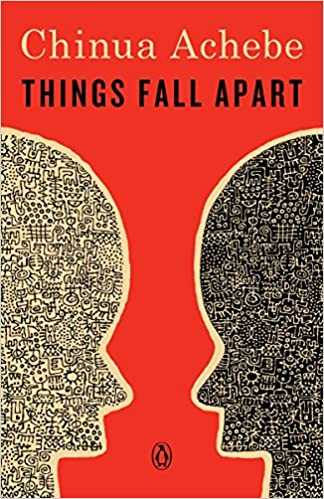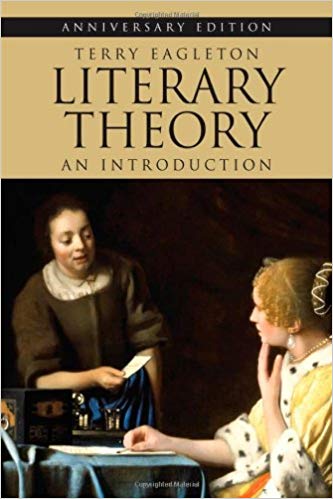ENGL 3913.002
Topics in World Literature: Postcolonial Literature
T, TR 12:30-1:50 PM, LANG 212
Office: Lang 408E
Office Hours: T, TR 11:00-12:00, 2:00-3:00 and By Appointment.
For questions about assigned reading: Reading Questions
Print syllabus in PDF
(Useful links to purchase your books: Amazon.com, Abebooks, Alibris, A1 Books, Booksamillion, Borders, Campus Book Rentals, English4Today, Sell Back Books, Textbooks.com)
Introduction
This course introduces you to some of the major world/postcolonial authors. The postcolonial cultural production can be roughly divided into three overlapping phases: the works produced during the contact phase, the native responses to colonialism, and the postcolonial cultural production both from the global periphery and the diasporic authors. Postcolonialism is a dynamic, expansive, and contested field of literary study involving a high degree of multidisciplinarity and theoretical innovation.
This course will also introduce you to the early and current debates of the field and possibilities of the field in the future. We will pay special attention to the current state of high capital and neoliberal globalization and the artistic and critical responses being offered in resistance. We will read these texts of the global periphery not simply as crystallized versions of the cultures that they attempt to represent, but also use them as points of departure into a study of the larger power structures within which these texts are produced. In doing so we will also question our own place and privileged location within the academy and imagine the possibilities of making our work commensurate with the acts of semiotic and material resistance being offered to the reigning power structures by the cultures of the global south in the spirit of what Gramsci describes as the organic intellectuals.
Using printed texts and film, this course will introduce you to the current global negotiation of power, the articulation of native resistance to the imperatives of globalization, and the native attempts at achieving social justice. In doing so we will also touch upon the role of the nation-state within the current climate of neoliberal globalization and the global war on terror, the politics of the diasporic cultural production, and the possibilities of rhizomatic global popular alliances.
Qurratulain Hyder. River of Fire.
Ngugi wa Thiong’o. Devil on the Cross.
Naguib Mahfouz. Children of the Alley.
George Lamming. In the Castle of My Skin.
- Ngugi–From the Garden of Languages, the Nectar of Art: An Interview with Ngũgĩ wa Thiong’o.
- Ngugi–Standing our Ground.
- “Qurratulain Hyder’s River of Fire: The Novel and the Politics of Writing Beyond the Nation-State.”
- Mahfouz–Time and Memory.
- Lamming–Minting the Face of Empire: Coinage and the Shadow King in George Lamming’s In The Castle of My Skin.
Course Policies and Requirements
You are expected to come prepared for class: This involves reading the assigned texts, listening carefully to your peers, and contributing your views in a collegiate and stimulating way. Attendance is mandatory.
- Mid-Term 300 Points
- Online Journal Responses 200 Points
- Participation 100 Points
- Final Exam 400 Points
- Total 1000 Points
Every week you will post your response to the readings on the discussion thread provided under Online Journals on the course website. To be able to do this you must create a user name on the course website; you will share this user name with me for me to be able to keep a record of your postings. Your response must at least be 500 words.
- What does the text say about gender, race, ethnicity, class, nation, or power and what are your views about it?
- Did you agree or disagree with the text’s politics? why?
- What is the text critiquing?
- How can we relate this text to contemporary realities?
- Does this text raise the question of justice? If so, how and for whom?
- Does the text provide a politics for a better future?
Week 2
Select Presentation Topics.
Discussion: HO 1&2 and Loomba.
Reading:
Loomba–Rest of the Book
Week 3
Discussion: Loomba
Reading:
Said
Week 4 & 5
Discussion: Said
Video: On Orientalism.
Reading:
Hyder
HO 3
Week 6
Discussion: Hyder and HO 1
Reading:
Hyder
Week 7
Discussion: Hyder
Reading:
Ngugi
HO 4 & 5
Week 8
Mid Term
Discussion: Ngugi and HO 4&5.
Reading:
Mahfouz
HO 6
Week 9 & 10
Discussion: Mahfouz
Reading:
Lamming, HO 7
Week 12
Discussion: marquez
Week 13
Fawzia Afzal-Khan. Lahore With Love
Week 14


